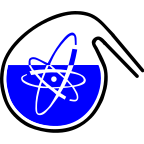Speaker
Description
In the last decades Massive Open Online Courses (MOOCS) have emerged and continued to grow, gaining recognition worldwide. MOOCs have the unique merit to enable to reach the widest number of users worldwide and offer them high-quality e-learning materials. However, even if completely free and always online, a MOOC could remain a treasure in the hands of few, especially when dealing with unique and specific disciplines.
To prevent this occurrence, the development of models for using MOOCs could be of paramount importance, in order to make this resource a valuable tool to help teachers enrich their courses and adopting innovative teaching approaches. In this perspective, within the H2020 A-CINCH project, different usage models have been proposed for the MOOC “Essential Radiochemistry for Society”, developed few years ago within the previous H2020 MEET-CINCH project and currently available at the Polimi Open Knowledge platform (https://www.pok.polimi.it/). The MOOC is addressed to Bachelor students in scientific and medical areas, with the aim to improve their awareness about NRC, realize its involvement in various aspects of everyday life and highlight its multiple beneficial applications in different areas of modern society.
The present work would like to describe some usage models developed on the basis of the MOOC usage experiences collected in different European countries, that exploited the whole MOOC or parts of it in different contexts, such as High Education courses, extracurricular initiatives and scientific fairs. The information and data acquired have been analyzed and used to prepare specific toolkits for teachers.
The work done has gained even more relevance in the light of the recent pandemic situation, that has overwhelmingly demonstrated that e-learning resources developed by recognized institutions could be well-designed and flexible materials readily available to ensure high-level training.
Acknowledgments: This work was financially supported by the European Commission within the H2020 MEET-CINCH Project (grant agreement No 754972, https://www.cinch-project.eu) and the H2020 A-CINCH Project (grant agreement No 945301) funded by Euratom research and training programme 2014-2018 and 2019-2020.

